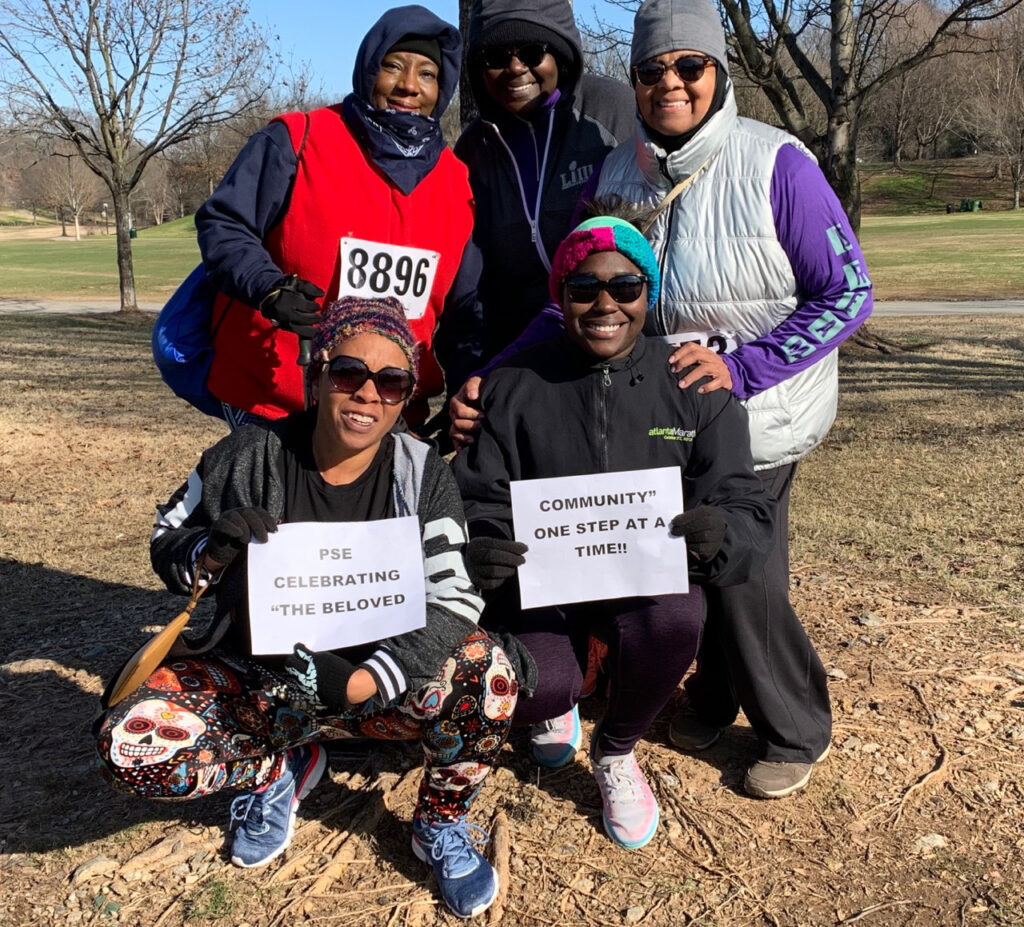Mothers & Others For Clean Air deeply believes that access to clean air is an inherent human right. We acknowledge that communities of color often suffer from an unequal burden of toxic pollution. We offer the following resource to advance education and dialogue about Environmental Racism within the state of Georgia. This is not a comprehensive list of issues, leaders, or organizations within Georgia. Rather, this post highlights a few issues and resources, and thus encourages continued awareness and involvement with issues of environmental racism in Georgia. We welcome anyone to share additional resources or thoughts with us.
What does Environmental Racism Look Like in Georgia?

Pollution: A report from 2012 identified that the most polluted (soil, water, and air) areas of Atlanta have a high density of Black, Indigenous, and people of color (BIPOC) residents and are composed of many neighborhoods where the primary spoken language is not English. The most polluted neighborhoods were five different blocks in Douglas, Fulton, and Cobb Counties. [i]
Proctor Creek Watershed: A watershed is an area of land which channels rainwater or other precipitation over the ground and funnels the water into rivers, streams, and other bodies of water. Watersheds easily pull along pollutants, sewage, and other toxic residues which accumulate on the ground.
Atlanta’s watershed is known as Proctor Creek Watershed which curves through downtown Atlanta and progresses out of the city until it joins the Chattahoochee River. As it passes through Atlanta, the watershed snakes through many economically depressed and minority communities. These communities are impacted by the bacterial contamination which spills out of the watershed. [ii]
Poultry Plants: Rural Georgia is home to the most poultry plants of any state in the country and is the nation’s largest supplier of broiler chickens. A large percentage of the labor force within the poultry plants are BIPOC and immigrants. Workers within these plants are exposed to air pollution, carcinogens, and water pollution which originate from both the animals and the machinery which processes them. These pollutants then leak into the soil, air, and ground water of the surrounding communities. The contaminants from poultry plants can cause asthma, heart disease, superbug resistance, lung disease, cancer, and many other health complications. [iii]
What is Georgia’s Government Doing About Environmental Racism?
A brownfield is a site planned for future development whose ground, water, or air was so badly polluted by the previous occupants that the land has been deemed unsafe until major renovations have occurred. The City of Atlanta has a brownfield program which uses EPA funds to promote the redevelopment of brownfields in Groundwork Atlanta, Proctor Creek Watershed, Murphy Triangle, and the Memorial Drive and DeKalb Avenue Rail Corridor. [iv]
BIPOC Scientists, Academics, Lawyers, and Researchers Working on Environmental or Health Racism
There are many scientists, academics and researchers working to change the course of environmental and health racism in the state of Georgia. The professionals highlighted below are all people of color. We offer their names as a gateway for individual or organizational research. We recognize that there are many incredible researchers whose names are not on this list. We welcome anyone to share additional names with us.
Bernetta Haynes, J.D: Senior Director of Policy and Access at Georgia Watch; Civil Justice, Clean Energy, Advocacy
Dr. Adjo Amekudzi-Kennedy: Professor Georgia Tech School of Civil and Environmental Engineering; Smart Infrastructure and Community Development
Dr. Christina Hemphill Fuller: Associate Professor Georgia State University; Outdoor air pollution’s effects on respiratory and cardiovascular health
Dr. Elizabeth Armstrog Mensah: Clinical Assistant Professor Georgia State University School of Public Health; Health Equity Disparities
Dr. Eri Saikawa: Associate Professor Environmental Sciences Emory University; Adverse health impacts of air and heavy metal contamination in urban soils in West Atlanta
Dr. J. Marshall Shepherd: Professor of Geography and Atmospheric Sciences at the University of Georgia School of Public Health; International expert in weather and climate
To Get Involved with Environmental Racism Advocacy in Georgia Follow & Consider Donating To…
Environmental Community Action (Eco Action) “At ECO-Action, we believe that communities have the right to clean air, land and water and should have a right to participate in the decisions that affect their own lives. Incredibly, many communities still do not have that right today. Those affected most by toxic chemical exposure are people who live in low-income communities and communities of color. We believe that people who work collectively to organize, make change, share resources, and solve problems will make a positive impact on their community’s health, environment and prosperity.”
Georgia WAND “Georgia WAND Education Fund’s mission is to educate the public and opinion leaders about the need to reduce violence and militarism in society, and redirect excessive military spending to unmet human and environmental needs.”
Partnership for Southern Equity “The Partnership for Southern Equity (PSE) advances policies and institutional actions that promote racial equity and shared prosperity for all in the growth of metropolitan Atlanta and the American South.”
[i] Thompson, D. D. J. (2012). A Report on Demographics and Pollution in Metro Atlanta. www.GreenLaw.org
[ii] US EPA, O. (n.d.). Urban Waters and the Proctor Creek Watershed/Atlanta (Georgia). Retrieved July 20, 2020, from https://www.epa.gov/urbanwaterspartners/urban-waters-and-proctor-creek-watershedatlanta-georgia
[iii] Baskin-Graves, L., Mullen, H., Aber, A., Sinisterra, J., Ayub, K., Amaya-Fuentes, R., & Wilson, S. (2019). Rapid health impact assessment of a proposed poultry processing plant in Millsboro, Delaware. International Journal of Environmental Research and Public Health, 16(18). https://doi.org/10.3390/ijerph16183429
[iv] Atlanta, C. of. (n.d.). Brownfield Program | Atlanta, GA. 2019. Retrieved July 21, 2020, from https://www.atlantaga.gov/government/departments/city-planning/office-of-zoning-development/brownfield-program




